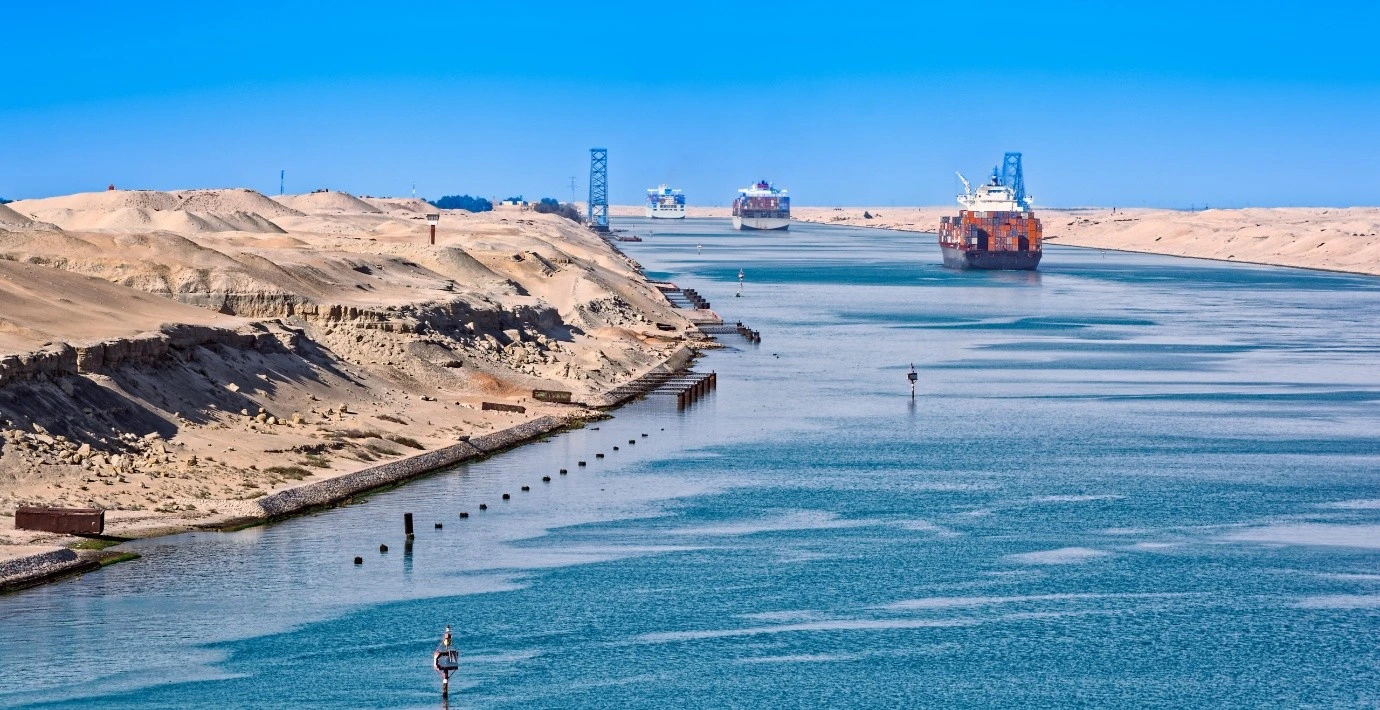Europe’s Fall from Power after Suez
 Europe’s Fall from Power after Suez
Europe’s Fall from Power after SuezThe Middle East’s and the larger post-colonial world’s geopolitical dynamics saw a clear turning point in the Suez Canal Crisis of 1956. Inspired by Egyptian President Gamal Abdel Nasser’s nationalizing of the Suez Canal, the crisis intensified when Britain, France, and Israel coordinated a covert military invasion to seize control of the canal and therefore discredit Nasser’s power. Although the tripartite invasion had early military success, European countries were obliged to retreat under international political pressure, especially from the United States and the Soviet Union. Europe’s Fall from Power after Suez This incident dramatically changed British and French imperial power’s responsibilities in the Middle East and sharply revealed their fall. The aftermath of the crisis greatly reduced European influence in the area, therefore bringing in a new period of superpower supremacy and local nationalism.
The Suez intervention’s failure exposed the decline in British and French power on the international scene right away. With Britain retaining relations in Egypt, Iraq, Jordan, and the Gulf and France firmly rooted in North Africa and Syria, both countries have traditionally exerted significant political, economic, and military power over the Middle East. But the limitations of their post-war authority were shown by their failure to act outside of U.S. and Soviet agreement during the Suez Crisis. Strongly opposing the invasion, the United States was worried about Soviet affiliation with Arab nations and eager to prevent raising Cold War tensions. Under President Eisenhower, the United States threatened strong economic reprisals against Britain, including the destabilizing of the British pound. Under this pressure, the British and French were obliged into a humiliating retreat, therefore marking the end of their period of unilateral action in the area.
There were real effects from this loss of reputation. Arab leaders and people saw the abortive invasion as a victory of anti-colonial resistance across the Middle East. Rising from the crisis as a hero and emblem of pan-Arab nationalism, Nasser became known His opposition to Western imperialism sparked a tsunami of nationalist groups and pushed other regional leaders to question governments supported by Europe. Beyond mere strategic defeat, the psychological damage to European nations undermined their soft power and moral authority, therefore making it more challenging to keep influence via diplomacy or proxy government. Uncertainty or even hostility greeted British and French efforts to negotiate future treaties or keep vital bases in the Middle East.
Moreover, the Suez Crisis sped up the geopolitical change from European to superpower dominance in Middle Eastern issues. The United States and the Soviet Union grew in impact in the emptiness left by British and French withdrawal. The rationale of the Cold War, that of containment and strategic alliances, dominated over conventional colonial goals. Under the Shah, Washington aimed to offset Soviet gains by forging tight ties with conservative governments such Saudi Arabia, Jordan, and Iran. Moscow also sent increasingly radical Arab governments, including Egypt, Syria, and subsequently Iraq, arms and ideological backing. Middle Eastern governments therefore started to identify with either superpower, usually playing them off against one another to get military and financial concessions. Global ideological conflict now dominated the intricate network of alliances that developed, not European concerns.
Economically, the Suez Crisis also affected European dominance in the Middle East over long terms. The canal was a key artery for the movement of oil from the Persian Gulf to European markets, not alone a strategic one. Its nationalizing and the consequent crisis instability highlighted Europe’s reliance on Middle Eastern oil supplies and the fragility of imperial-era logistical systems. Britain and France progressively lost direct control over oil output and transportation routes in the years after the crisis as nationalist governments reclaimed natural resources and renegotiated agreements with foreign corporations. Their power to have impact in the area was further reduced by this decline of economic leverage.
Long term, the Suez Crisis spurred internal re-evaluations on global positions among Britain and France. Particularly east of Suez, the crisis hastened Britain’s decolonization process and caused more clear alignment with U.S. foreign policy. Under Prime Minister Harold Macmillan and his successors, the British government realized it had to embrace a junior partnership within the American-led Western alliance. Under President Charles de Gaulle, France followed a different route, responding to the humiliation of Suez by seeking a more autonomous foreign policy featuring a more dubious attitude toward NATO and a fresh emphasis on Franco-African ties. Still, both nations had to come to terms with the end of their days serving as main Middle Eastern power brokers.
The aftermath of the Suez Canal Crisis drastically reduced European influence in the Middle East. Under international criticism, the forced departure of British and French soldiers revealed their declining worldwide reputation and indicated the obsolescence of colonial-era power relations. Apart from empowering local nationalist leaders like Nasser, the crisis helped the United States and the Soviet Union to become major actors in regional events. Strategically, politically, and economically Britain and France found themselves progressively excluded in the Middle East, their historic dominance replaced by the demands of Cold War competition and the growth of local political groups. The Suez Crisis therefore signalled both a beginning and an end: the start of a new order in Middle Eastern geopolitics and the last chapter of European imperial power.











